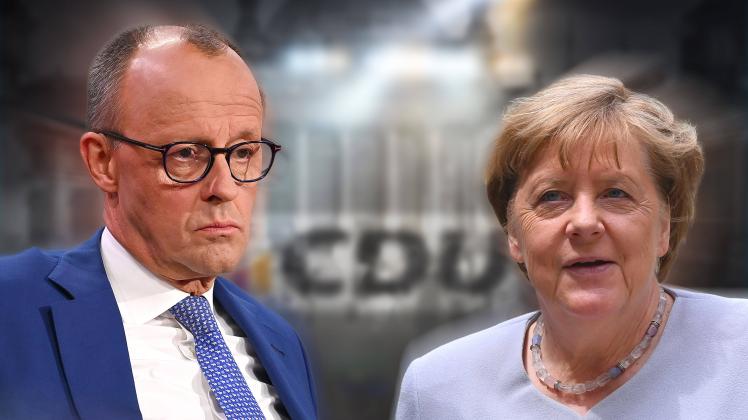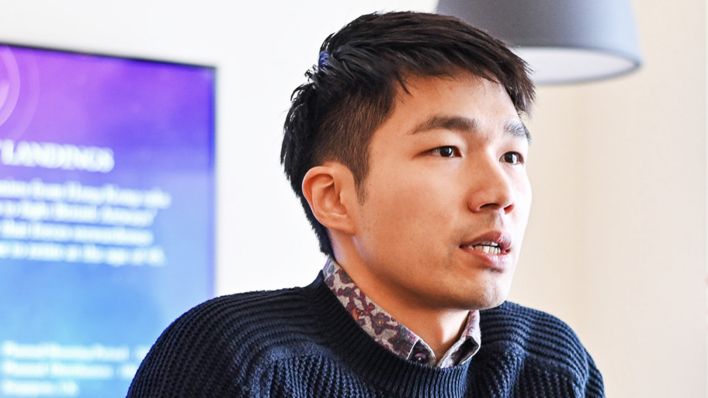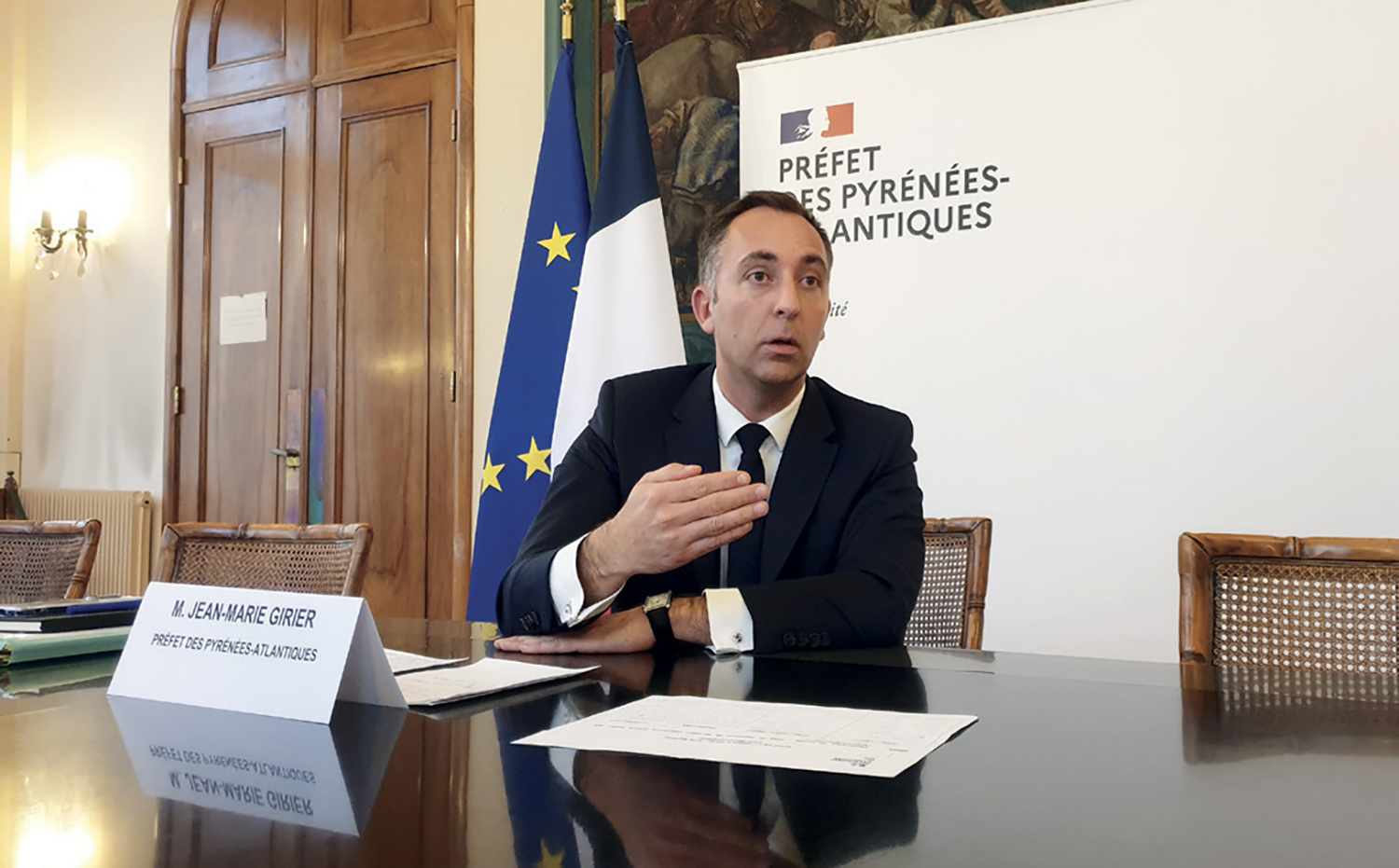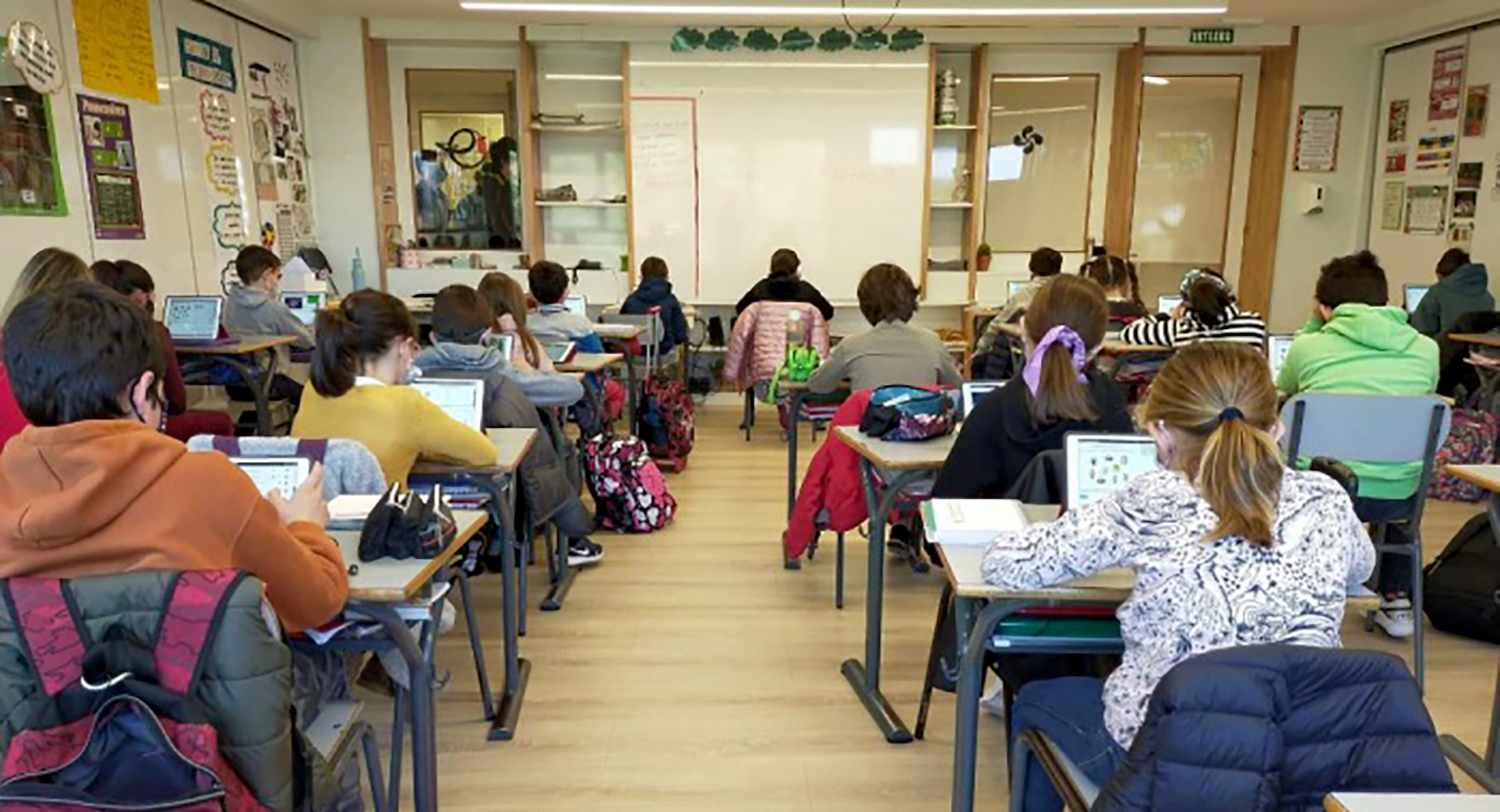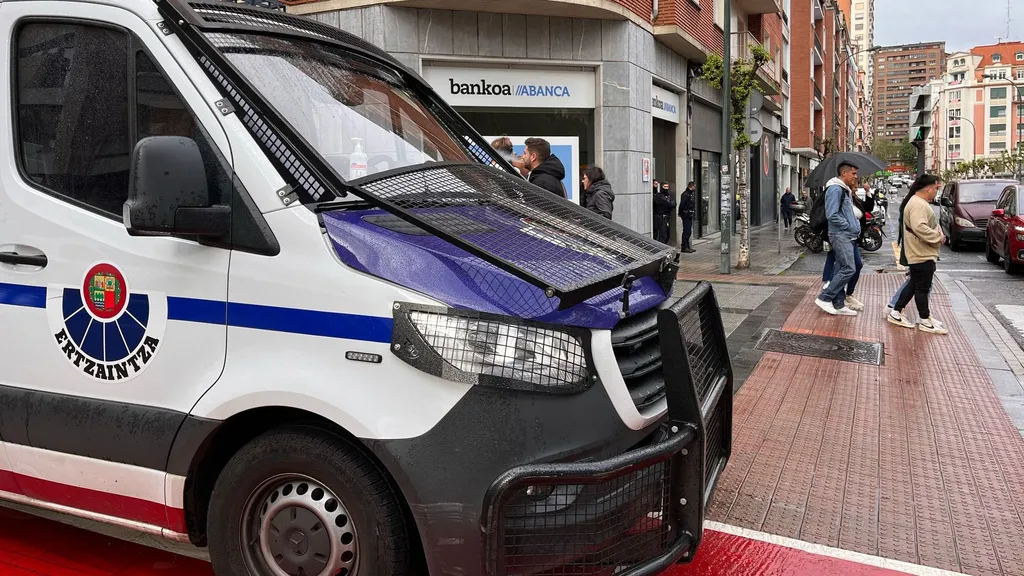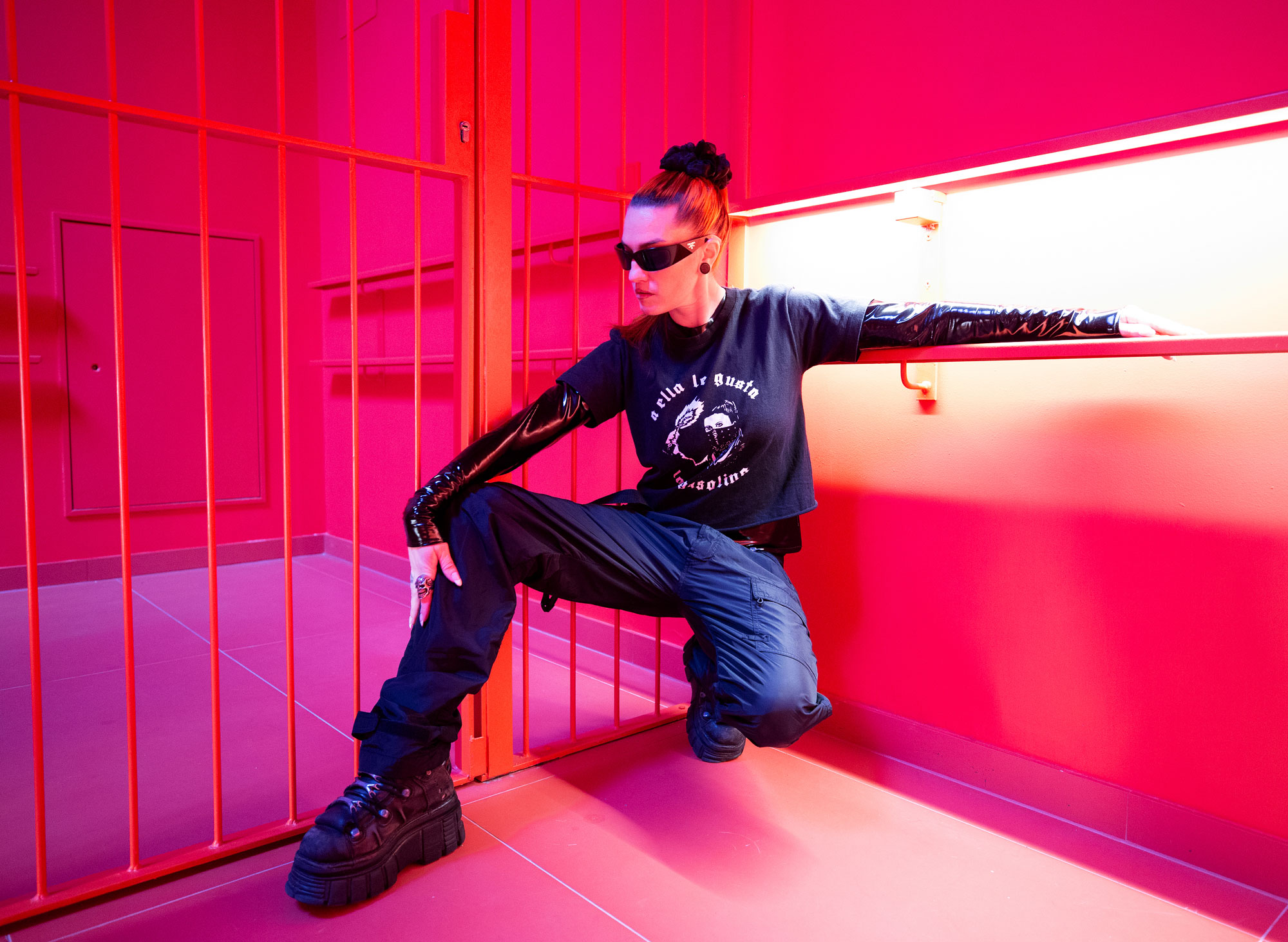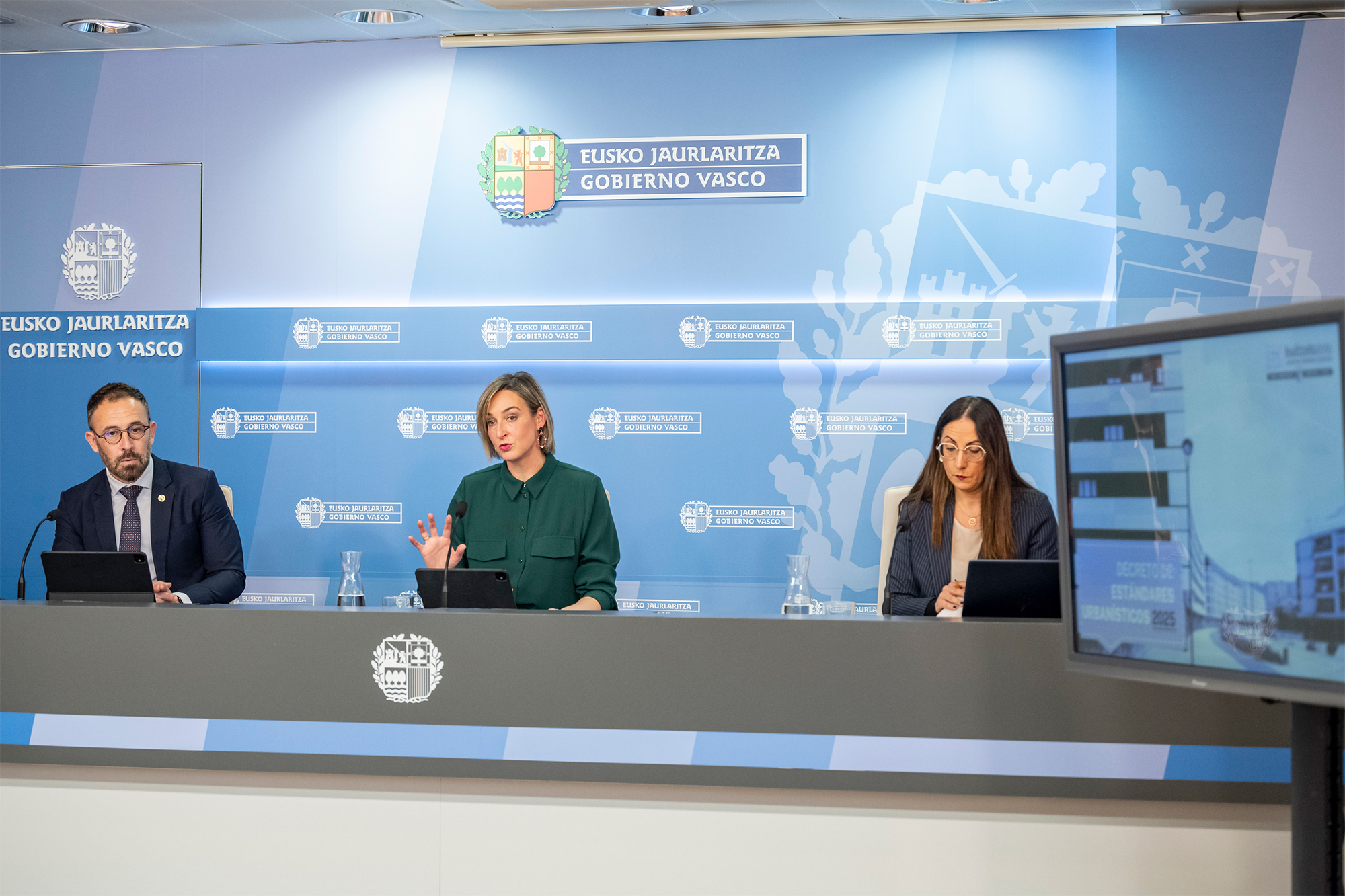"This people needs a party table so they don't get frustrated."
- Bilbao. 1972. It's from Algorta. I turned to both of them. Subsequently, he moved to the United States to deepen and broaden knowledge of the conflicts in the Basque Country. On his return, he was an adviser to the peace policy in the Basque Government of Ibarretxe. It is currently engaged in social innovation.
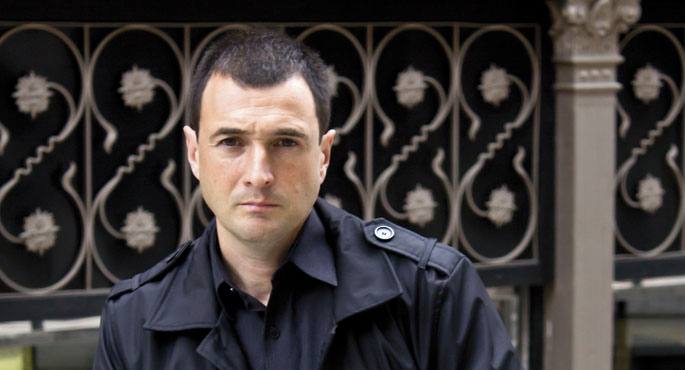
Our interlocutor is the director of the documentary Pluja seca/Rain seca. The documentary has been produced in collaboration with TV3 de Catalunya and has the collaboration of EiTB. Gorka Espiau, an expert in conflict resolution, has brought together in this documentary international mediators working on conflict resolution. We have talked about this and about the environment that is experienced after the last municipal and foreign elections.
In Northern Ireland, dry rain is evaporated before entering the surface, in the Basque Country, on the other hand, the Sirimiri drenches the body. This is the metaphor that illustrates your documentary.
Yes. The metaphor has served me to unite the conflicts in South Africa, Ireland and different territories of the Basque Country. Of course, like all metaphors, neither does this metaphor have the ability to represent reality as a whole. However, we have managed to explain the links between the three territories, as well as the differences. Metaphor is not a game of words. For example, I am sick to hear that Ireland and the Basque Country have nothing to do with it. It is clear that they are different situations, because contexts are different, but the question is to learn from the two situations. The Irish and the Basques are different, OK, but in the last ten years the knowledge among us is greater because relations are also deeper. Human history has been developed by analyzing the different situations and performing critical learning from each of them.
What defines the political conflict in Basque Country? What are its differential characteristics?
There are many characteristics, but at the moment I would highlight the symbolic element. In the world today, ethno-political conflicts are the most notable; ours are the communities defined by the political ethnographic elements. In our case, however, the situation is different. Symbolic elements are the most important in our plural society. And sometimes, that's why it's so hard to explain what conflict is: symbolic elements seem easier to solve, but it's just the opposite. Negotiating symbolic elements and obtaining full reparation for them is virtually impossible. When the elements are tangible, we can decide “for you seven and for me four.” But the symbolism cannot be divided. In our case, this is the most important element.
The Pluja seca starts and ends with the statements of Brian CURRIN. Her mediation work can be the focus of the documentary.
Yes and no. I mean, we've tried not to make a documentary about Brian Currin. At first we saw that danger. Brian Currin is often in the media, he's getting really important things, and it was easy to go that way. But for us it was very important to follow the line that we had opened. According to Paul Ríos, many mediators, or facilitators, have intervened in the processes, and certainly some have been better than Brian Currin, but he has been at the key moments of the processes. It is the same that has managed to channel the conflict in a positive way on the Abertzale left. Despite the different positive and negative views on his work, we must accept it and thank him for it. The changes that have taken place in the last two years cannot be understood without taking into account their contribution. That is what we have tried to explain in the documentary. And that doesn't mean that we prioritize all their work. We wanted to take a global picture of the conflicts that are a complex constellation.
Can a conflict be resolved without the work of international mediators?
Probably yes. As a hypothesis yes, but if we can enrich the process with your experience, why not? Moreover, in today's world internal and external dynamics are not the same as twenty years ago. At the moment everything is tied. What happens in Euskal Herria is related to the committees of the European Parliament, and what happens in Spain with the rest of the world. To say that what happens in our environment is an internal problem is a vision and an opinion of the last century.
What is the profile of a good mediator?
The Protestant priest Harold Good explains this very well in the documentary: he says that his job was to prepare tea in Northern Ireland, to organize the space to make possible dialogue between different people. These are the real intermediaries. And not the ones who come to tell you what to do, or the ones who want to get out in the picture. These often appear, even as actors, to be dangerous. The principal objective of the mediator is to create the conditions for the real protagonists, the actors, to get ahead to discuss the problem.
With the agents, in the documentary the most “discordant” note could be that of Lepoldo Barreda of the PP.
We knew that Barreda was going to hold that speech, and that's what we wanted. This discourse is present in our society and it is better that I explain it clearly. In addition, the fragments we have introduced go against the thesis of the documentary, and that is necessary, a rigorous and critical look. His contribution is very important, because the opinion of pp is clear.
Again from José Antonio Pastor of the PSOE?
Pastor's speech is more varied, has different parts, some harder than others, but we have tried not to simplify them. Although the PSOE speech contains Barreda’s views, our effort has been to introduce nuances from the Socialist Party. We are satisfied.
The new notes come from the Abertzale left and not from the Abertzale left.
Yes. Something curious happened around the Abertzale left. When we recorded it with Rufi Etxeberria, what he says himself commented later on in Euskadi Radio. In society, the discussion and the railing had erupted, and we had already interviewed at that time. We knew it was a new opinion, when we recorded it was a “bomb.” Before the documentary was made public, it was already known. It is significant that Rufi said the new speech of the Abertzale left. In Geneva he was present at the talks between the Government of Spain and ETA, as well as in which Jonathan Powell spoke. It is important that they both appear in the documentary.
There may be a lack of others.
Yes, that's why they're not, if you can criticize the documentary. By the absence of representatives of Aralar, EA, EB and Alternatiba. But that's a documentary problem. To do this, it took ten interviews, because otherwise we would be in trouble. However, we conducted twenty-three interviews. The most important opinions are international ones, not those of the Basque Country. Achieving balance has been very difficult, surely over time you see it clearer. The testimony of those of Aralar would be better to explain the evolution of the Abertzale left. That's my spine.
Leaving the documentary aside. What is the situation with regard to the alleged peace process following the municipal and foreign elections? How does the current political climate influence the standardisation process?
The elections, not only, but above all the elections, have reflected the story of the naked king. In other words, in recent years the story of our people seemed fictitious. In the story the king appeared naked, when the king said, I mean village. The king was naked and no one spoke. And if you said anything, you were radical. I mean, you were directly related to violence. No one could say the king was naked. The elections show that the king was completely naked. And now we all say: Here's the truth!
All...
Well, we all knew that our people were not as reflected in society in the last two or three years, but, with exceptions, everyone in general “accepted it” (I do it figuratively, not those who were illegalized, of course) that a fictional village was being held, plus nothing could be said. That is what has changed the elections and has given the opportunity to open new avenues in standardisation policy and in general policy.
The results of Bildu or the left Abertzale have not been unrelated to the evidence.
Yes. But political outcomes aren't good or bad in themselves, they'll be good if they're used well. Objectively, current photography is better, because it's more real and you have to act with it. Some people will say it's not real, it's a gas phenomenon. But the picture is much more real.
You talk about the views of the PP and the PSOE.
Yes, their reactions have been the clearest proof of the king's story. These aspects have considered the results as something strange, especially in Spain. For example, Odón Elorza lost the City Hall of San Sebastian: “What is that like?” “And Bildu has won as well.” What really surprises me is that I live in this country, and there's what it says that the Abertzale Left lives outside this world. Probably in some subjects it is true, but PP and PSOE also live at that moment in a similar way. The pp and the PSOE appear to be in another galaxy, after hearing their statements after the elections last Sunday, when they were re-elected. I mean, didn't you realize the environment created by the legalization of the Abertzale left? Really amazing. Not only in these sectors, but also some sectors of the PNV have done that reading in some way. The results of Bildu have surprised the candidates of the Abertzale coalition.
Do you think everyone is going to start to notice the new situation?
Yes, reality commands. The king's fiction can be maintained, but reality commands. This fiction can be maintained for two or three, five or ten years, but at a time ... But that has also happened to ETA: ETA has tried to maintain the reality of the past, but a time has come when, from one day to the next, there has been a radical change in the Abertzale left. If today the Abertzale left had taken on board what it proposed at the time of the Lizarra-Garazi Agreement, what would the current situation be, no? Terrible. They've tried to keep a fictional picture, but all of a sudden, the victory has been for a completely different Abertzale left. Clearly, this Abertzale left has more to do with reality.
ETA, for its part, has not announced the definitive ceasefire or the cessation of terrorist activity. The Gernika Convention and the Brussels Agreement are on the table.
Knowing what's going to happen with ETA is hard because it's a complex organization, it's going to be hard to find a solution. According to Paul Ríos, the current situation has allowed ETA to make a more real story, seeking a dignified end. What will happen to ETA? I don't have the ability to know what's going on, but what matters politically is that the focus is on politics, and people want to make politics on the only peaceful path.
Where is the danger or the key?
It would be risky to reiterate the attitude of the Basque left so far. In other words, it has breathed when in the past it has also achieved good electoral results, and has not dealt well with its environment, it has continued to impose its positions. The key is not to repeat it, to see the new Basque left and not to repeat the old positions – I am not talking about the attitude of violence, but about the political position. It is a test on how to develop the relationship it maintains with Aralar. Some believe that the road to Aralar has been a mistake, has deviated ... But if you want to build a plural Abertzale left, EA, Alternatiba and Aralar have to talk. If they really do, we will be facing a renewed Abertzale left, and that will have a tremendous capacity, even to overcome the PNV. If they fail to do so, we will continue in the same circle, albeit without violence.
IRA: Can it be like a real one here?
Yes, it can be. But it won't be the same. The military capacity of the IRA has been impressive in terms of explosives and weapons, although small groups have remained, they are highly specialized and very rapid teams in the military field. I do not believe that this exists. I really believe that the time has passed for ETA’s violence in this country. There may be, as in Northern Ireland, serious problems, but in general, as the Abertzale left has said, the situation is not reversed.
Will the situation change with the investiture of pp as a government of Spain?
My opinion is absolutely marginal, but I continue to argue that this cannot be resolved without a party table, which is organised publicly. I believe there is a lack of political leadership. I don't know what the Abertzale left will do tomorrow, neither the PNV nor the others, but society has to go by, it has to live this process. Society has the experience and the desire to work in this process, because otherwise it will live a frustration, it is a task that will remain in the air, this people need a political and psychological table, and not as in Loiola or Geneva, but in addition to the political representatives participate in it representatives of society. The Basque society is still being taken as a minor, but this society knows what it wants, it knows how to express it, that has appeared in the elections. We need that process so that the story of the king does not recur. I know that the main aspects do not agree with this approach. They see it as something of the past.
He says that political leadership is needed. Is he a leading person? Was it Ibarretxe or similar?
It is not a question of people, I think it is more a political decision. People and groups with capacity are needed: “I am willing to defend this, even though the media and many other sectors are against it,” they said. Ibarretxe did it in some way, some will say it was a mistake. However, the change we are undergoing cannot be understood without prioritizing some of the positions that were adopted along the way so far. In other words, there was a leadership that said: “Outside violence there is conflict and there is debate.” That was lost in some way, but that attitude has made it possible to represent the story of the king. And now the situation has changed.
Maybe a new leadership is created.
Yes, the Abertzale left has taken another path. But the Abertzale left has regained prominence, so the Spanish Government may wish to take the lead and try to get a picture between the two sides. Temptation can also be that. But the Abertzale left should say: “We have to share the photo and if not, we won’t be.” In fact, photography has to be general, from the whole of society. Otherwise, the error of always will be made, entering into the problems of always.
Nondik nora Pluja Seca dokumentala?
Baleuko etxetik etorri zen ideia lantzeko eskaintza. Gidoia idatzi eta TV3ra bidali nuen. Mónica Terribasek harrera ona egin zion proiektuari. Lana urte batean osatu genuen. Normalean honen antzeko dokumentalak Euskal Herriko ikuspuntutik egin izan dira, gure kontsumorako. Kataluniako –eta katalanen– ikuspegia baliatu nahi nuen. Askatasunez egin dut. Iritziak jaso ditut eurengandik, eta horrek aberastu du lana. Kataluniak badu lotura Euskal Herriarekin, baina iraganeko kontua balitz bezala. Aldiz, nik harremana nahi dut etorkizunera begira. Katalanek maitasun handiz hartzen dute bakerako gure nahia eta beharra, baina guk ez diogu kasu bera egiten.
Zein erreakzioak jaso dituzue berari buruz?
Orain arte, Pluja secari buruzko iritzi positiboak eduki ditugu, ez dugu inolako iritzi ezkorrik irakurri edo entzun. Baina horrek ez du esan nahi, ez daukanik, baizik eta orain arte, dokumentala gustuko ez dutenek nahiago izan dutela isildu. Eta horrek asko esan nahi du. Horrek esan nahi du batzuek dokumentalaren atzean dagoen eztabaidari ez diotela heldu nahi, nahiago dutela dokumentala baztertu, esparru marjinalera zokoratu, zeren eta dauden eztabaidak konfrontatzen badituzte deseroso senti daitezke. Orduan, jaso duguna positiboa izan da, baina errealista izanik, ez ditugu jaso gizartean dauden iritzi guztiak. Halaber, hainbat politikarik ikusi dute, eta iritzi baikorrak jaso ditugu, baina PP eta PSOEko kideei ez diegu ezer entzun.
Gustura geratu zara, halere?
Bai, oso gustura geratu naiz. Bi parte zeuden: edukia eta forma. Iban Gonzalez izan da zuzendari teknikoa, izugarrizko lana egin du, ezin da dokumentala ulertu bere ekarpena barik. Nik ez baitut inolako esperientziarik arlo honetan. Gustura naiz, baina esan bezala, sorpresa izan da, berbarako, Brian Currin-en rola azaltzea, zerbitzu sekretuek edo ingurukoek mehatxatu dutela esatea edo Jhonatan Powel-en parte-hartzea, objektiboki elementu oso berriak direlako. Dokumentalak ez du tesi finko bat eskaintzen, ez da norabide bakarrekoa, ñabardura asko dauka, ez da inoren kontra eta denak ondo azaltzen dira. Erreakzio edo erantzun zabalago bat espero nuen.
49 urte preso pasa ondoren, libre utzi dute Leonard Peltier AEBetako ekintzaile autoktonoa. Otsailaren 18 honetan heldu da bere senide eta lagunen artera 80 urte dituen preso-ohia.
In the Maszycka cave in Poland, remains of 18,000 years ago were found at the end of the 19th century. But recently, human bones have been studied using new technologies and found clear signs of cannibalism.
This is not the first time that a study has reached this conclusion,... [+]
Porzheim, Germany, February 23, 1945. About eight o’clock in the evening, Allied planes began bombing the city with incendiary bombs. The attack caused a terrible massacre in a short time. But what happened in Pforzheim was overshadowed by the Allied bombing of Dresden a few... [+]
On February 3rd, the time has begun to pre-enroll our children and young people in schools, and as every year we would like to remind you why we do not think it is a good idea to enroll them in religion. Last year we finished the article saying that “many of you will be... [+]
From the Association of Parents of the Instituto Arratia Small Tram we want to encourage reflection on the use of screens in the learning community.
Lately there is a lot of concern about the impact of screens on children and adolescents. This responsibility extends from... [+]












